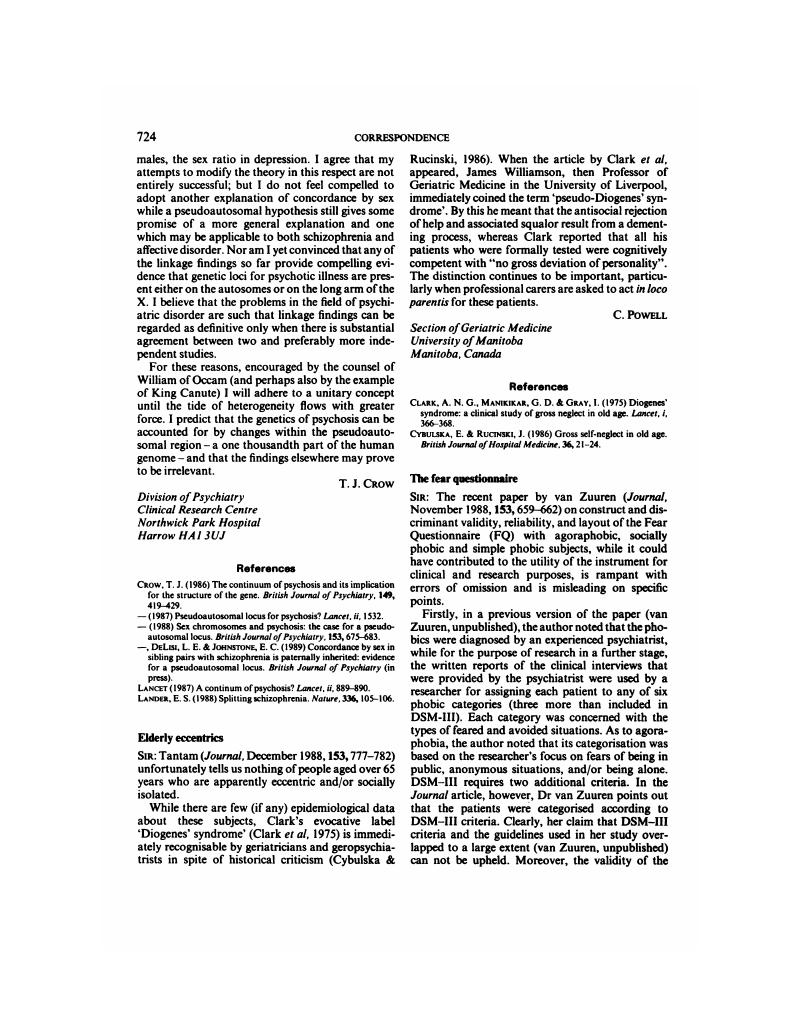Crossref Citations
This article has been cited by the following publications. This list is generated based on data provided by Crossref.
Arrindell, W.A
Solyom, C
Ledwidge, B
Van der Ende, J
Hageman, W.J.J.M
Solyom, L
and
Zaitman, A
1990.
Cross-national validity of the five-components model of self-assessed fears: Canadian psychiatric outpatients data vs. Dutch target ratings on the fear survey schedule-III.
Advances in Behaviour Research and Therapy,
Vol. 12,
Issue. 3,
p.
101.
Cox, Brian J.
Swinson, Richard P.
and
Shaw, Brian F.
1991.
Value of the Fear Questionnaire in Differentiating Agoraphobia and Social Phobia.
British Journal of Psychiatry,
Vol. 159,
Issue. 6,
p.
842.
Demartini, Benedetta
Batla, Amit
Petrochilos, Panayiota
Fisher, Linda
Edwards, Mark J.
and
Joyce, Eileen
2014.
Multidisciplinary treatment for functional neurological symptoms: a prospective study.
Journal of Neurology,
Vol. 261,
Issue. 12,
p.
2370.




eLetters
No eLetters have been published for this article.